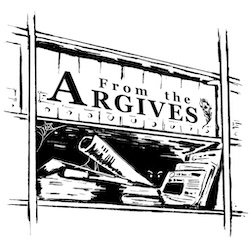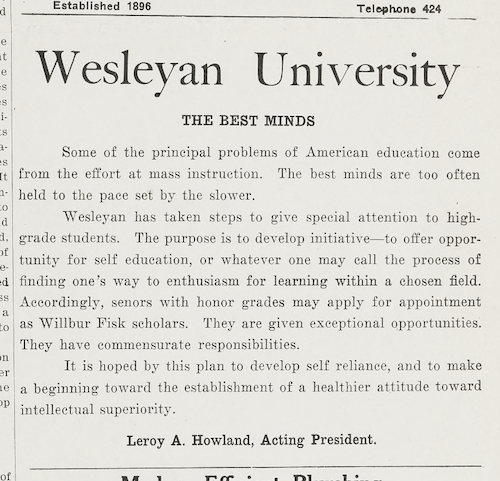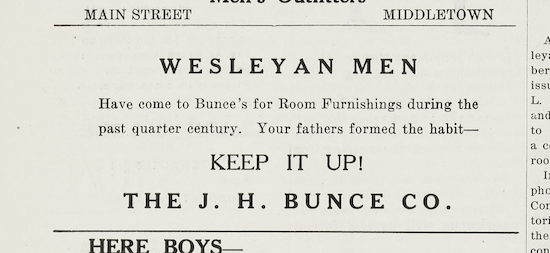
c/o Soren Stokes
Cheers to the new year! Setting New Year’s resolutions is a time-honored tradition well-documented in The Argus. This issue of the Argives, the first of 2025, will explore the University as it stood 100 years ago through its aspirations for the year 1925. Hopefully, looking back on this distant past will set the new year in perspective and account for the changes and constants on campus over the past century.
Right off the bat, students at the University resolved to keep from spreading themselves too thin. In its first 1925 issue on Jan. 8, The Argus published “The Extrinsic Danger,” a searing condemnation of campus hustle culture.
“To be brief, The Argus condemns: The status by which men of real ability…serve in so many activities that their ability lacks its fullest expression,” the unspecified writer wrote. “Consequently The Argus condemns this attitude of thoughtless ambition which is leading real ability into waste channels.”
Much like today, this notion of pulling back was far from universally viable. Productive involvement on campus would be reflected in the Olla Podrida (the University’s yearbook, discontinued in 2009), which proved a powerful motivator for students to overextend.
“To the undergraduate, this may sound to his ears like blasphemy, a pagan appeal for lesser goals…as a plea to do away with the goal of achievement,” the article reads. “On the other hand…[this should be] interpreted to apply to the attempted serving of God and Mammon and several other idols in the form of Olla Pod points.”
Although The Argus resolved against overcommitment in 1925, the column outright disowned disengaged and inactive students, the inverse of Olla Pod idolaters.

Jan 19, 1925. c/o The Wesleyan Argus
“Individuals who might have served in some capacity, and have not,” the article declared, “for those scofflaws, The Argus has neither congratulations, nor condemnation, nor consideration!”
The University next resolved to prioritize its community spirit in the new year. In a Jan. 15 article titled “Campus Advertising,” The Argus reported on major issues and their potential remedies.
“With the passing of the initial period…we observe a gradual change,” the unspecified writer wrote. “Why insist on a cheery ‘Hello’ on the campus, if we are unable to inculcate a spirit of cheer, rather than…one of sullen tolerance, boarding on condescension, when encountering a stranger?”
In the same edition, The Argus also published an expository complaint entitled “Junior Exhibition,” printed directly beneath “Campus Advertising.” Its unnamed author, evidently a big fan of the debate team, urged students to become proper scholars in 1925.
“Among the sad commentaries on the intellectual life of the student body…is the apparent disinterest in activities tinged with the need of mental work,” bemoaned the writer, citing the University’s uncelebrated debaters. “[In] the Junior Exhibition of last year…three energetic speakers enthusiastically addressed an audience of three judges and a bored Argus reporter. ”
To the writer, the new year would ideally give the Junior Exhibition another chance to shine and see the student body commit to the debate team, if not general intellectual aims.
The following Monday, Jan. 19, 1925, then-Acting President Leroy A. Howland, class of 1900, published an edited version of an announcement printed in each prior edition of The Argus that year. Labeled “Wesleyan University: THE BEST MINDS,” Howland’s note echoed aspects of the abovementioned author’s vision for a cheerful, studious environment.
“Wesleyan has taken steps to give special attention to high-grade students,” Howland wrote, describing the new honors program. “The purpose is to develop initiative—to offer opportunity for self-education, or whatever one may call the process of finding one’s way to enthusiasm for learning.”
Howland’s exclusionary tone would likely undermine his pitch for the academic initiative, particularly given several students’ calls for student unity reflected in the previous 1925 editions of The Argus.
“The best minds are too often held to the pace set by the slower,” remarked Howland about the honor program’s purpose. “It is hoped by this plan to develop self-reliance, and to make a beginning toward the establishment of a healthier attitude toward intellectual superiority.”
This version of Howland’s advertisement was reprinted on Jan. 22, 1925. That Thursday, The Argus spotlighted opportunities to connect, including the details of an approaching, once-per-century event, as described in an article titled “TOTAL SOLAR ECLIPSE WILL BE OBSERVED ON SATURDAY MORNING.”

Jan. 8, 1925. c/o The Wesleyan Argus
“On Saturday morning, January 24, an astronomical phenomenon will be observed in Middletown, which will not occur again until the year 2024,” the writer wrote. “Shortly before the beginning of totality, which is scheduled to occur here at twelve and a half minutes after nine, shadow bands, dancing, wave-like bands of light and shade, will be seen.”
Matching their prediction, Middletown witnessed a partial solar eclipse on April 8, 2024. In 1925, all at the University just as eagerly anticipated the monumental eclipse. Naturally, the Astronomy Department prepared to seize this unique opportunity.
“All efforts to photograph [shadow bands] have been unsuccessful,” The Argus explained. “A party will attempt this feat at the Van Vleck Observatory, where a white sheet will be stretched out. A highly sensitive plate will have to be used in the diminishing light.”
Even without a historic eclipse, setting New Year’s resolutions can still put a lot on one’s plate.
Hope Smith can be reached at hnsmith@wesleyan.edu.
“From the Argives” is a column that explores The Argus’ archives (Argives) and any interesting, topical, poignant, or comical stories that have been published in the past. Given The Argus’ long history on campus and the ever-shifting viewpoints of its student body, the material, subject matter, and perspectives expressed in the archived article may be insensitive or outdated, and do not reflect the views of any current member of The Argus. If you have any questions about the original article or its publication, please contact Archivists Lara Anlar at lanlar@wesleyan.edu, Hope Smith at hnsmith@wesleyan.edu, and Maggie Smith at mssmith@wesleyan.edu.